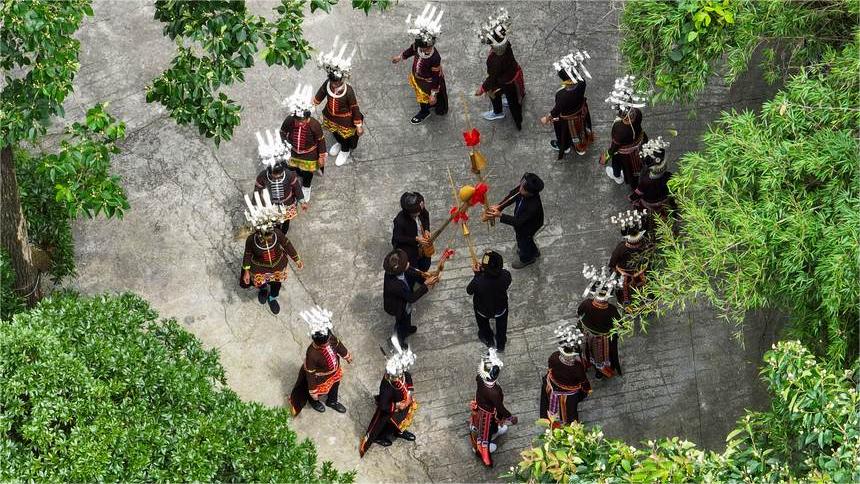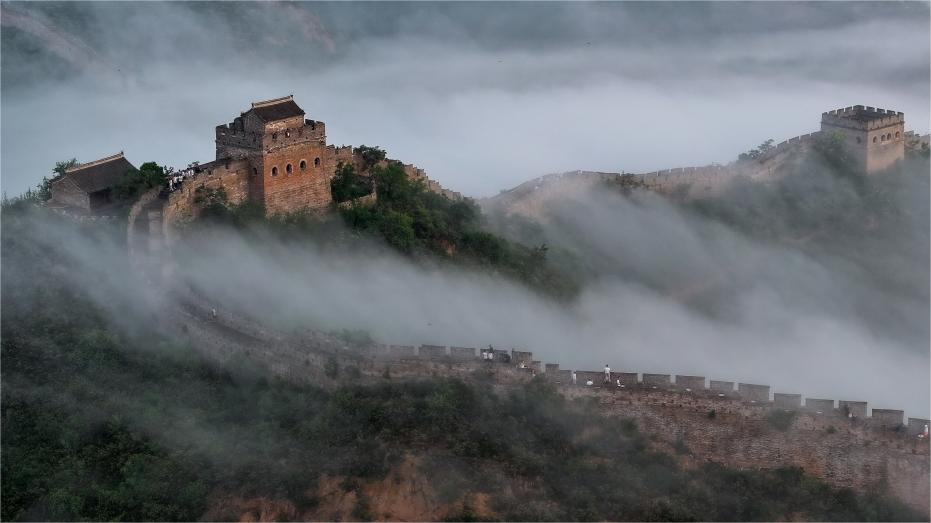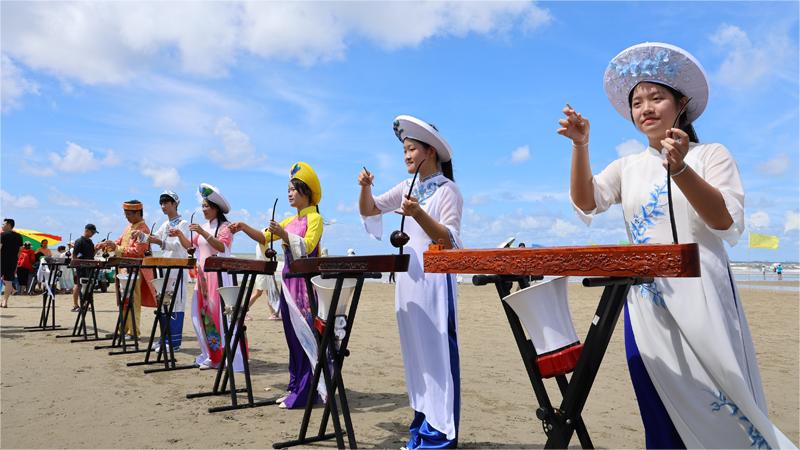Dialogue injects vitality into ancient civilizations
China and Uzbekistan, both ancient nations, have a history of friendly exchanges along the Silk Road that spans over 2,000 years. Today, their cooperation in various fields such as culture, education, health, tourism, and sports continues to expand, setting a good example of dialogue between civilizations.
A filming crew from People's Daily Online, as part of the "Cultural Silk Road” program, recently visited Uzbekistan to explore the glorious history of the ancient Silk Road civilization. They documented the vitality and progress that exchange and mutual learning between China and Uzbekistan has injected into the development and progress of human civilization.
Amir Timur Museum: Cultural relics bear witness to exchanges and mutual learning along the ancient Silk Road
Entering the Amir Timur Museum in Tashkent, the capital of Uzbekistan, one is immediately captivated by the grandeur of the blue and gold dome, as well as three exquisitely crafted murals.
During his visit to Uzbekistan in September 2013, Chinese President Xi Jinping visited the Amir Timur Museum, where he was attracted by a map of the ancient Silk Road. Xi pointed to a location on the map, identifying it as Xi'an, his hometown and the starting point of the Silk Road.
Surayyo Ulzhabayeva, now deputy director of the Amir Timur Museum, vividly recalled President Xi's visit.
"President Xi listened attentively as we guided him around the museum," Ulzhabayeva said.
"Throughout the tour, we were impressed by his extensive knowledge as leader of a country. He not only possessed a deep understanding of Chinese history but also displayed a keen interest in the history of other nations," Ulzhabayeva expressed.
According to Ulzhabayeva, the museum's historical documents depict Uzbekistan as a prosperous trade hub during the reign of Amir Timur. Skilled artisans would replicate Chinese goods and decorate porcelain with Chinese-style patterns. These cultural relics demonstrate the exchange and mutual learning among different civilizations.
Confucius Institute in Samarkand: Youth exchange carries forward millennium-old friendship
The works of the 2024 "International Chinese Language Day" Chinese writing competition are displayed on the hallway walls of the Confucius Institute at the Samarkand State Institute of Foreign Languages, located in Samarkand. Each stroke is meticulously crafted, showcasing the authors' excellent Chinese writing skills.
Inside a classroom, a Chinese language teacher was teaching Chinese vocabulary and provided illustrative examples.
Among the students was 21-year-old Jin Xin (Chinese name), who has been studying the Chinese language for four years. In April this year, she had the opportunity to travel to China with the teachers from the Confucius Institute to participate in the 2024 "Chinese Bridge" Spring Camp for students from Shanghai Cooperation Organization (SCO) countries. During her time there, she developed friendships and acquired skills in Chinese dance and playing Go.
This year marks the 10th anniversary of the establishment of the Confucius Institute at the Samarkand State Institute of Foreign Languages. The institute boasts a team consisting of one Chinese and one Uzbek director, along with five full-time Chinese teachers and two full-time Uzbek teachers.
The Confucius Institute at the Samarkand State Institute of Foreign Languages has more than 600 registered students currently, according to Wang Duanyong, the Chinese director of the institute.
Shakhriyor Safarov, the Uzbek director of the institute, told People's Daily Online that the younger generation of Uzbekistan is eager to embrace and understand Chinese culture. The students at the Confucius Institute exhibit remarkable enthusiasm and diligence in their pursuit of Chinese language proficiency and understanding of Chinese culture.
Artistic dialogue injects vitality into civilizations
On July 24, 2023, dancers of the dance troupe "Tumor" from the Uzbekistan National Grand Theatre staged a performance during a gala titled "Our Common Home" held in Urumqi, northwest China's Xinjiang Uygur Autonomous Region.
"I believe that art has the power to bring people together and cultivate friendships. By performing in China, we were able to showcase the Uzbek dance style to the Chinese audience while also learning about Chinese dance. We also participated in a seminar where we had the opportunity to interact and share knowledge with our Chinese counterparts. It was an enriching experience," said Alsu Galimova, a dancer from "Tumor."
"We participated in a dance festival in Xinjiang and received a warm reception. The people there were friendly, and the delicious food added to the fun," said Gulayim Bekmuratova, a 22-year-old dancer with 11 years of experience.
Only through exchange and mutual learning can a civilization thrive. Through increasing international exchanges and cooperation, the youth of China and Uzbekistan are inheriting and developing their civilizations, breathing new life and vitality into their ancient cultures.
(Web editor: Hongyu, Wu Chengliang)









